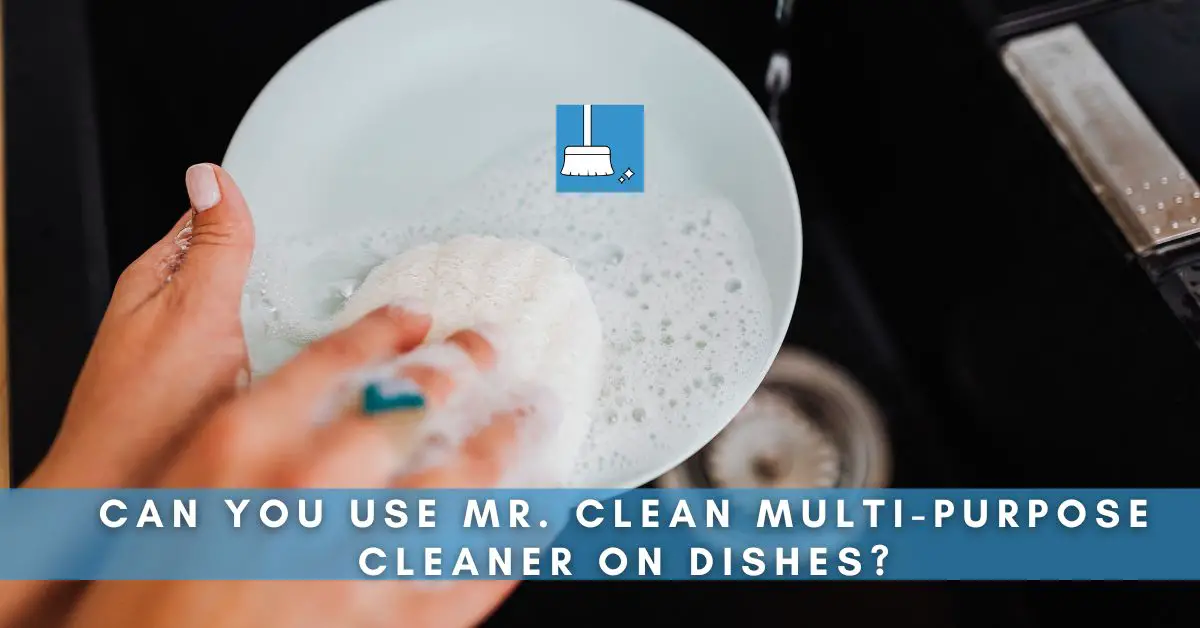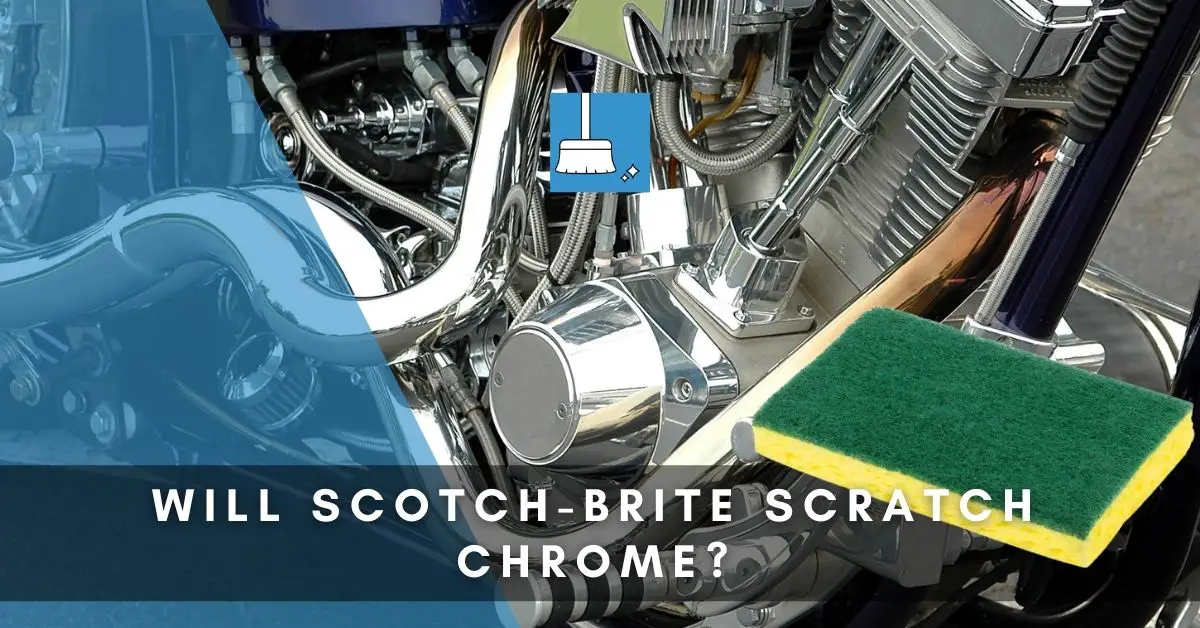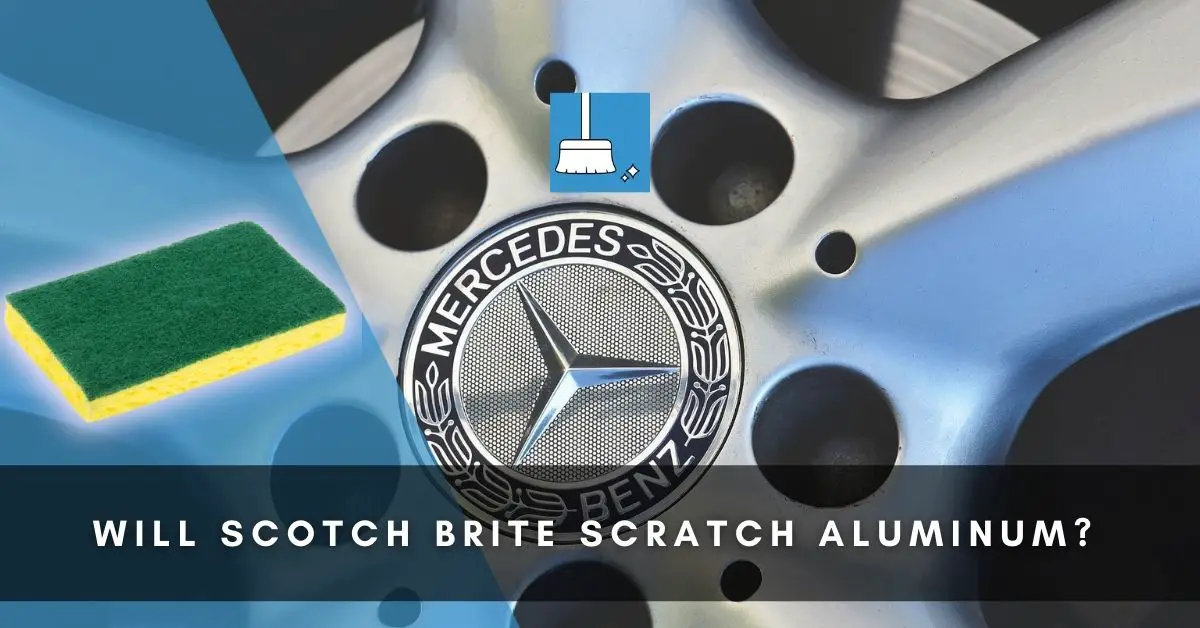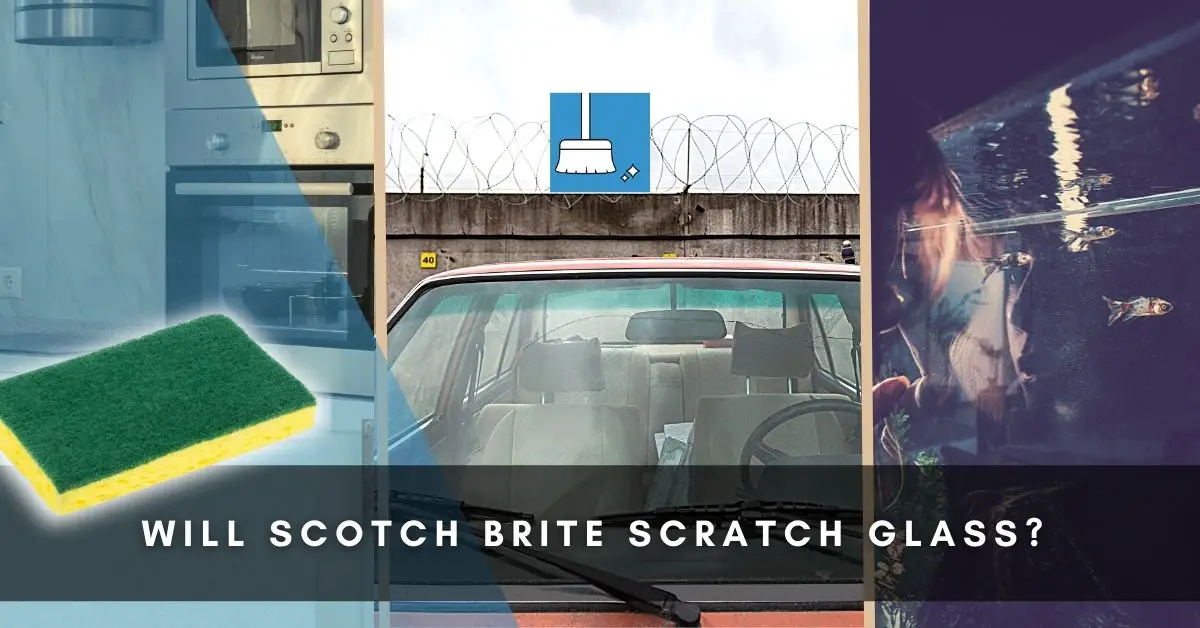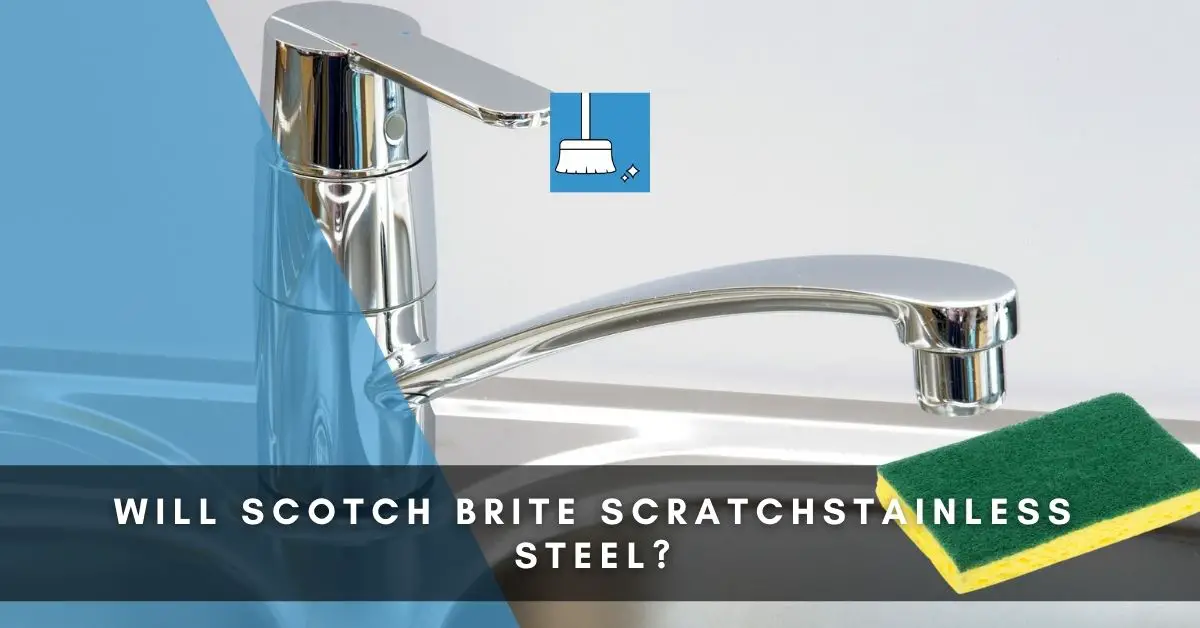Mr. Clean Multi-purpose cleaner can be used to clean different types of non-porous surfaces, but does that include dishes? We will be answering this question in this article, and also list dish soap alternatives, and how to use them.
Can You Use Mr. Clean Multi-Purpose Cleaner on Dishes?
Mr. Clean Surface Cleaner contains chemicals and ingredients that make it an effective cleaner for hard surfaces like furniture, countertops, tiles, etc. but these chemicals are what make it unsafe for dishes. These can leave residues on your dishes that will harm you if accidentally ingested.
Ingredients of Mr. Clean Multi-surface Cleaner
1- Sodium hydroxide: This chemical dissolves oil, grease, and fat, and breaks down the buildup of dirt so that it can be easily cleaned. It causes severe burns in the mouth and throat if ingested, and can even lead to death.
2- Sodium carbonate: This is an inorganic chemical compound also known as soda ash. It cleans effectively, but when ingested it can cause diarrhea, vomiting, abdominal pain, or even death.
3- Ethanolamine: This is a colorless liquid with an awful odor but it makes cleaners effective. When ingested, it can be very harmful.
4- Sodium chloride: It is basically salt and is used in many cleaners because of its cleaning abilities. It is only harmful when ingested in large quantities.
5- Benzisothiazolinone: It is a disinfectant and preservative. It is harmful when swallowed.
6- Alcohol ethoxylate: It is a surfactant that enhances wetting, foaming, and degreasing. When ingested, it is harmful but not very toxic. It will irritate the tract and cause some discomfort which can be quickly remedied.
7- D limonene: This is a colorless liquid found in high quantities in orange peels. They remove grease, and stains, and clean effectively, and they are only harmful when ingested in large doses.
8- Amine oxide: It is a non-ionic surfactant produced by the reaction of a tertiary amine with hydrogen peroxide. Products containing this ingredient can be very toxic if inhaled or swallowed.
How about Using Mr. Clean Mutli Surface Cleaner in a Dishwasher?
Cleaners that aren’t specifically made for dishes or dishwashers aren’t supposed to be used in dishwashers, so Mr. Clean is a no-no.
Here are more reasons:
1- Because Mr. Clean Multi-purpose cleaners aren’t made to clean dishes so there are chemicals in them that aren’t meant to be ingested. Some of these chemicals have been highlighted above to show the dangers of accidental ingestion.
To get rid of their residues on your dishes, you would have to rinse thoroughly and many times. And you can’t be 100% sure there aren’t any left. Not won’t the time, energy, and trouble.
2- Mr. Clean Multi-purpose cleaners are meant for cleaning grease, grime, and heavy buildup of dirt off hard surfaces. The composition of these chemicals or ingredients may be too harsh on your dishes and may damage the fragile ones.
3- You don’t know how it’s going to affect your dishwasher. It may foam too much which will be difficult to handle because your dishwasher will be unable to drain the froth. It may contain chemicals that are too harsh for the surface of your dishwasher. It may also leave residues that will contaminate your dishes every time you wash them.
4- Dishwasher tabs and detergents are cheaper to use than Mr. Clean Multipurpose cleaner. There are also better alternatives to dishwasher detergents than Mr. Clean Multi-purpose cleaner.
With Mr. Clean, you will not only be exposing yourself to potential harm, but you will also be spending more money than you should which isn’t necessary at all.
What to Wash Dishes Instead of Dish Soap?
1- Castile soap: It is a biodegradable and non-toxic cleaner that can be used on different surfaces. It is also good for the skin and cleans dishes effectively.
Mix 4 parts of castle soap with 1 part of water and stir. Pour the solution into a bottle, and you are done.
2- Shampoo: These clean dishes as much as they do hair. Use small quantities to avoid too much foam and rinse thoroughly.
3- Wood ash: This may look unlikely but it works pretty well. Use it when it is cool and not hot, and mix it with water to make a paste. Smear the paste on your dishes, pots, and pans, and scrub with a sponge. Rinse with hot water.
4- Lemon juice: This also helps to eliminate odors and mold. To aid its effectiveness, add some salt.
Spray your dishes with lemon juice and sprinkle some salt. Then scrub with a sponge until they are clean. Salt is also great at removing stuck-on food residue on your pots and pans.
This can also be used in a dishwasher.
5- Vinegar: This cleans the dishes and also sanitizes them mildly. For hand washing, mix 1 cup of vinegar with 1 cup of water. Spray on the dishes and scrub clean. Then rinse with water.
For dishwashers, pour 1/2 cup of vinegar into a bowl and put it on the top rack.
6- Baking soda: Make a paste with baking soda and water. Smear this on your dishes and scrub with a sponge. You may need to smear more if the dishes are very dirty and the first cleaning didn’t give you the result you want.
Baking soda doesn’t disinfect, so after cleaning the dishes, soak them in hot water for about five minutes, before rinsing them.
6- Bar soap: It’s convenient and easy to use. In the long run, it’s cheaper too. Wet your sponge or scrubbing pad and rub it on the soap. Then use it to scrub your dishes clean. It may not foam as much as a dish soap but it will still get your dishes clean. Rinse the dishes with hot water thoroughly after washing.
Final Thoughts!
There are several alternatives to dish soap for hand washing dishes or dishwashers that are inexpensive. These do not however include multi-surface cleaners as they can cause harm.

